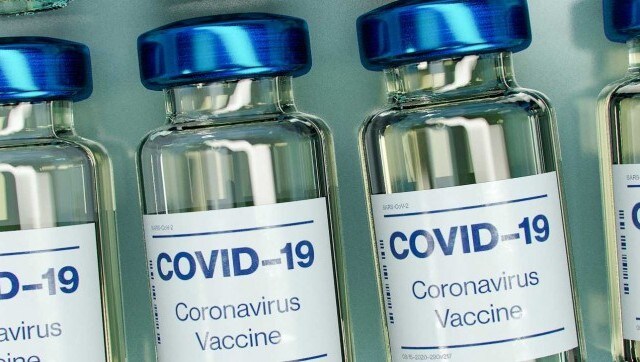Risk of rare blood clotting higher after COVID-19 infection than after vaccines, says Oxford study
Compared to the current COVID-19 vaccines, the risk of developing cerebral venous thrombosis is between 8-10 times higher after contracting the infection, the study said

Representational Image. Unsplash
The risk of rare blood clotting known as cerebral venous thrombosis (CVT) following COVID-19 infection is several times higher than post-vaccination, according to a study unveiled on Thursday.
infection is several times higher than post-vaccination, according to a study unveiled on Thursday.
The study led by researchers at the University of Oxford in the UK counted the number of CVT cases diagnosed in the two weeks following diagnosis of COVID-19 , or after the first dose of a vaccine.
, or after the first dose of a vaccine.
They compared these to calculated incidences of CVT following influenza and the background level in the general population.
The team found that CVT is more common after COVID-19 than in any of the comparison groups, with 30 percent of these cases occurring in the under 30s.
than in any of the comparison groups, with 30 percent of these cases occurring in the under 30s.
Compared to the current COVID-19 vaccines, this risk is between 8-10 times higher, and compared to the baseline, approximately 100 times higher, they said.
vaccines, this risk is between 8-10 times higher, and compared to the baseline, approximately 100 times higher, they said.
"There are concerns about possible associations between vaccines, and CVT, causing governments and regulators to restrict the use of certain vaccines," said Paul Harrison, Head of the Translational Neurobiology Group at the University of Oxford.
"Yet, one key question remained unknown: What is the risk of CVT following a diagnosis of COVID-19 ?" Harrison said.
?" Harrison said.
The researchers noted that COVID-19 markedly increases the risk of CVT, adding to the list of blood clotting problems this infection causes.
markedly increases the risk of CVT, adding to the list of blood clotting problems this infection causes.
The COVID-19 risk is higher than seen with the current vaccines, even for those under 30, they said.
risk is higher than seen with the current vaccines, even for those under 30, they said.
This is something that should be taken into account when considering the balances between risks and benefits for vaccination, according to the researchers.
The researchers noted that it is important that this data should be interpreted cautiously.
The signals that COVID-19 is linked to CVT, as well as portal vein thrombosis -- a clotting disorder of the liver -- is clear, and one we should take note of, they said.
is linked to CVT, as well as portal vein thrombosis -- a clotting disorder of the liver -- is clear, and one we should take note of, they said.
An important factor that requires further research is whether COVID-19 and vaccines lead to CVT by the same or different mechanisms, according to the researchers.
and vaccines lead to CVT by the same or different mechanisms, according to the researchers.
There may also be under-reporting or miscoding of CVT in medical records, and therefore uncertainty as to the precision of the results, they added.
also read

Maharashtra: COVID-19 inoculation drive temporarily halted in Pune, Panvel and Satara due to shortage of doses
In highest ever single-day spike, the state reported 59,907 new COVID-19 cases on Wednesday, taking the overall caseload to 31,73,261

More than 6.75 crore COVID-19 vaccines administered so far, says health ministry
A total of 17,47,094 vaccine doses were given on Thursday till 8 pm, the 76th day of the inoculation drive

Nurse embracing patient in Brazil wearing 'hug curtain' wins World Press Photo of the Year
The photo symbolizing 'love and compassion' shows an 85-year-old woman getting her first embrace in five months from a nurse, through a 'hug curtain'.